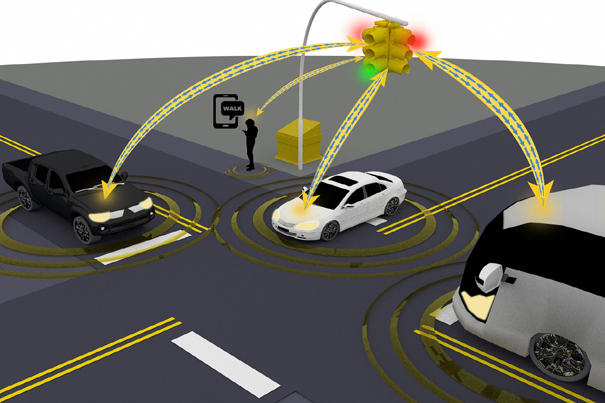In today's rapidly evolving world, the concept of smart transportation has emerged as a game-changer in urban mobility. With the integration of advanced technologies and data-driven solutions, smart transportation strategies are revolutionizing the way people and goods move within cities. This article aims to delve into the intricacies of smart transportation, exploring its significance, key components, and the potential it holds for creating sustainable and efficient urban ecosystems.
- Understanding Smart Transportation:
Smart transportation refers to the intelligent integration of various technologies, data analytics, and communication systems to optimize the efficiency, safety, and sustainability of transportation networks. It encompasses a wide range of solutions, including intelligent traffic management, connected vehicles, public transportation systems, and multimodal mobility options. - Key Components of a Smart Transportation Strategy:
a) Intelligent Traffic Management: Leveraging real-time data and advanced analytics, smart transportation systems enable efficient traffic flow management, reducing congestion and travel times. Adaptive traffic signal control, dynamic route guidance, and predictive traffic modeling are some examples of intelligent traffic management techniques.
b) Connected Vehicles: The advent of connected vehicle technology enables seamless communication between vehicles, infrastructure, and pedestrians. This connectivity facilitates real-time information exchange, enhancing safety, optimizing traffic flow, and enabling innovative services such as vehicle platooning and autonomous driving.
c) Public Transportation Systems: Smart transportation strategies emphasize the integration and enhancement of public transportation networks. Intelligent fare collection systems, real-time passenger information, and demand-responsive transit services contribute to improving accessibility, reducing private vehicle usage, and promoting sustainable urban mobility.
d) Multimodal Mobility Solutions: Smart transportation aims to provide diverse and interconnected mobility options. Integrating various modes of transport, such as buses, trains, bicycles, and ride-sharing services, through seamless ticketing, route planning, and payment systems, enhances convenience and encourages the use of sustainable transportation alternatives.
- Benefits and Impacts of Smart Transportation:
a) Enhanced Efficiency: By optimizing traffic flow, reducing congestion, and improving public transportation systems, smart transportation strategies enhance overall transportation efficiency, saving time and resources for individuals and businesses.
b) Improved Safety: Intelligent traffic management systems, connected vehicles, and advanced driver assistance systems contribute to reducing accidents, enhancing road safety, and mitigating risks associated with human error.
c) Environmental Sustainability: Smart transportation promotes the use of sustainable modes of transport, reducing greenhouse gas emissions and air pollution. By encouraging the adoption of electric vehicles, promoting cycling and walking, and optimizing routes, smart transportation strategies contribute to creating greener and healthier cities.
d) Economic Growth: Efficient transportation systems are vital for economic growth. Smart transportation strategies facilitate the movement of goods and services, supporting businesses, attracting investments, and fostering innovation in urban areas.
- Challenges and Future Outlook:
While smart transportation holds immense potential, several challenges need to be addressed for its successful implementation. These include data privacy and security concerns, infrastructure requirements, and ensuring equitable access to smart transportation solutions. However, with ongoing advancements in technology and increased collaboration between public and private sectors, the future of smart transportation appears promising.
Conclusion:
The smart transportation strategy represents a paradigm shift in urban mobility, offering innovative solutions to address the challenges faced by modern cities. By harnessing the power of technology, data, and connectivity, smart transportation has the potential to create sustainable, efficient, and inclusive urban ecosystems. Embracing this transformative approach will pave the way for a future where transportation is safer, greener, and more accessible for all.


